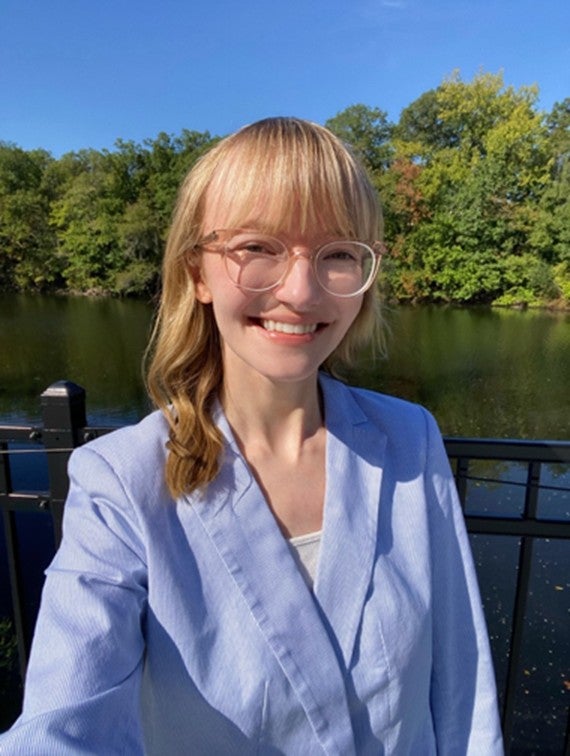Degree program: PhD
Year accepted: 2025
Advisor: Emily Diamond
Research: Science communication, community engagement, environmental justice
Background: M.S. Marine Resource Management, Oregon State University; B.S. Marine Biology and B.S. Environmental Science, University of New Haven
Katrina Elizabeth Vickery is a marine social scientist whose work focuses on inclusive science communication. Growing up in Franklin, Massachusetts, and spending summers by the water in Cape Cod, she developed an early love for nature and marine life that led her to double major in Marine Biology and Environmental Science at the University of New Haven. Alongside her coursework, she developed a passion for education through prior roles as a peer tutor and educator at the Mystic Aquarium and Boston Children’s Museum. In these roles, she found joy in translating complex ideas into engaging experiences for visitors.
During this time, she also took part in a study-away course in Alaska, where she had the chance to interview diverse marine stakeholders whose perspectives shape coastal systems. This experience shifted her focus from natural science to the human dimensions of ocean issues and marine governance, ultimately leading her to Marine Affairs. She earned a master’s degree in Marine Resource Management at Oregon State University, where she helped design a climate communication workshop to build scientists’ confidence in engaging with the public. After her master’s, she returned to the University of New Haven as an adjunct professor teaching Marine Affairs courses and mentoring student research. Her love for teaching and outreach further solidified her desire to pursue her passion through academia, where she could strengthen her knowledge connecting scientific research, policy, and community engagement while educating others.
Katrina joined the University of Rhode Island as a Ph.D. student in Marine Affairs in the Fall of 2025 and is a Graduate Research Assistant with Dr. Emily Diamond on a multi-institution project assessing community awareness of microplastic pollution. Her work focuses on conducting a community needs assessment in the Providence area to understand how residents perceive and experience microplastic pollution, what information they find most relevant, and what concerns guide their engagement with coastal issues. Through this work, she aims to co-create culturally relevant communication strategies that connect scientific research with local priorities. In doing so, her research helps ensure that emerging marine pollution studies can meaningfully inform community resilience and regional policy development.
For Katrina, inclusive science communication is more than just sharing findings and includes dialogue, collaboration, and ensuring communities have a voice in the research that affects them. Outside of school, she enjoys live music, baking treats for her colleagues, hiking, exploring coastal towns, and spending time with her cat.

